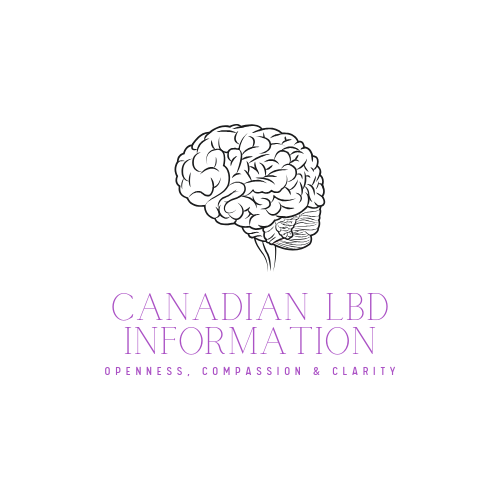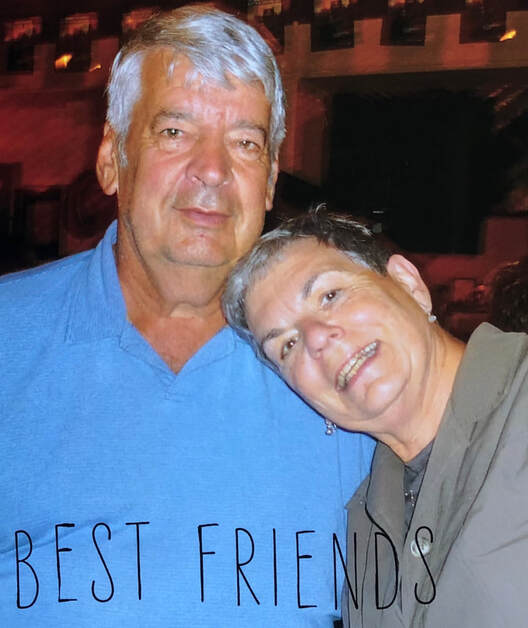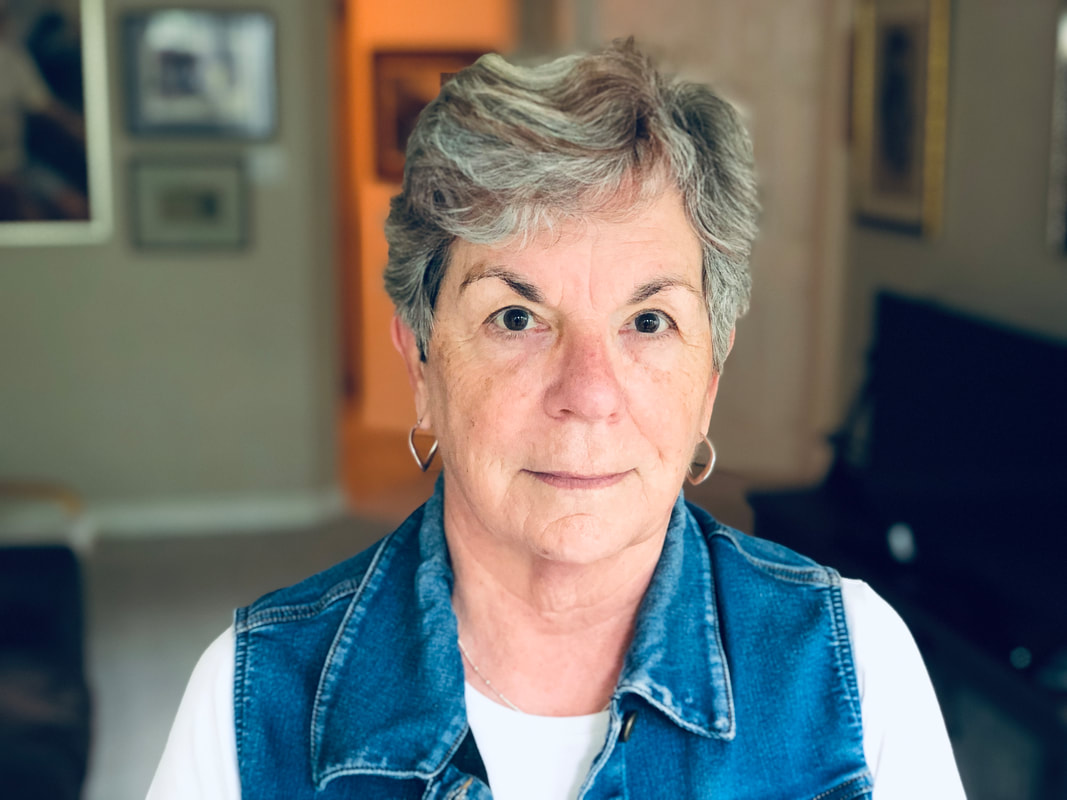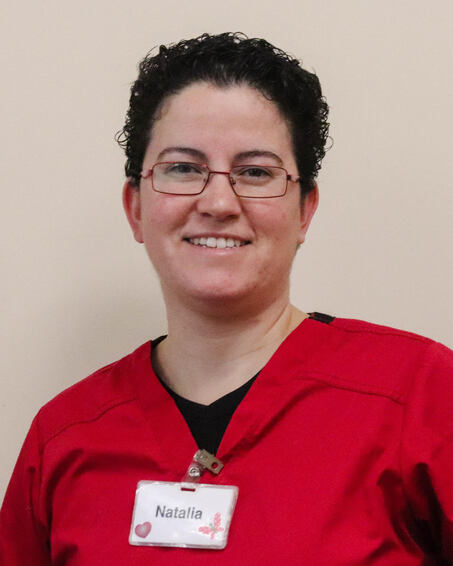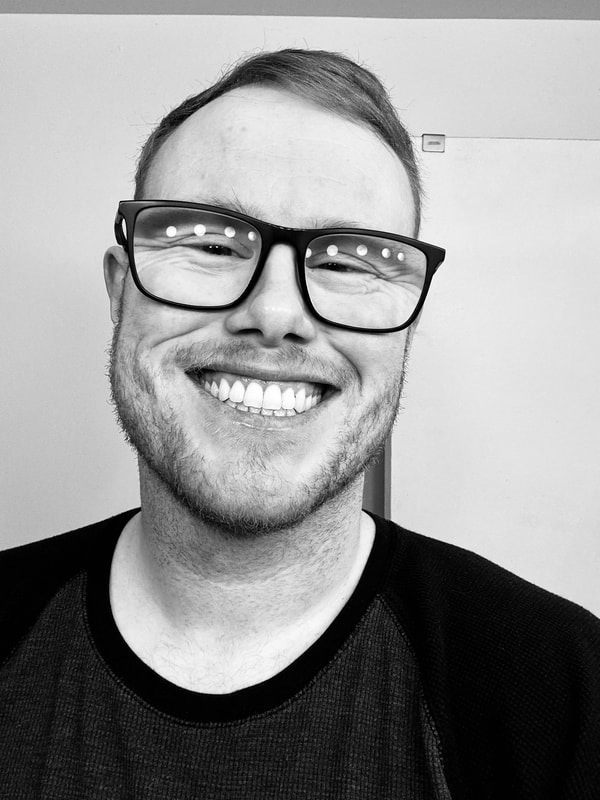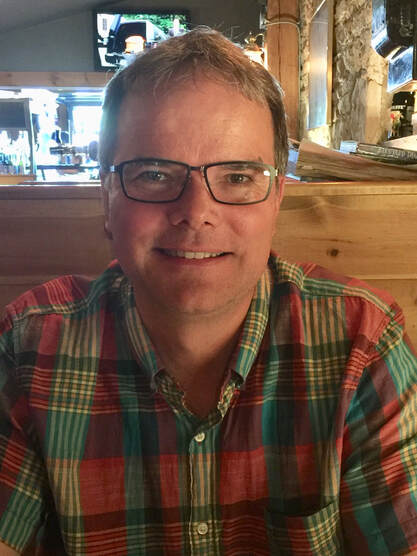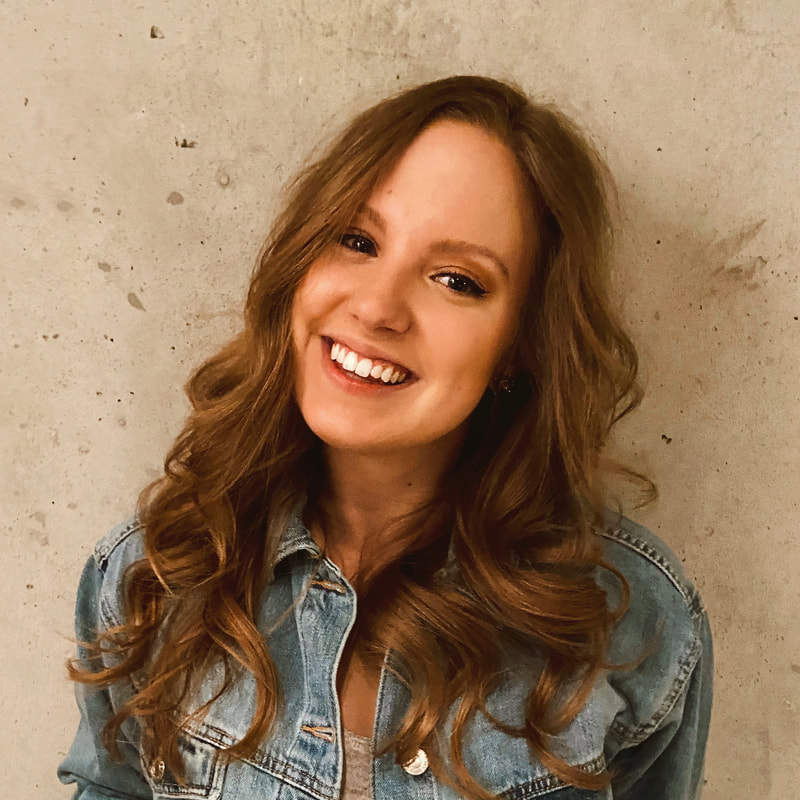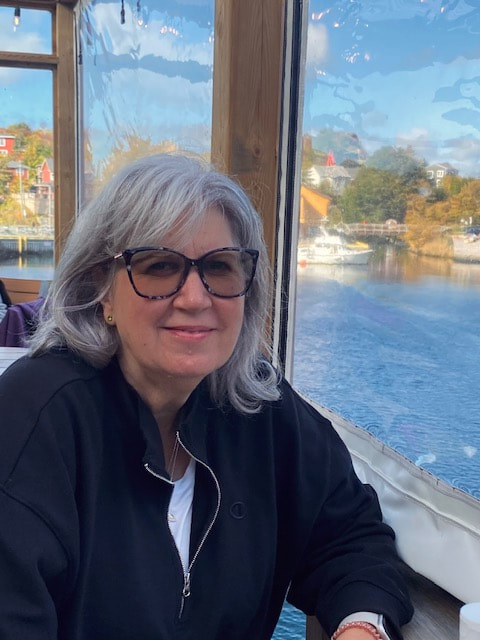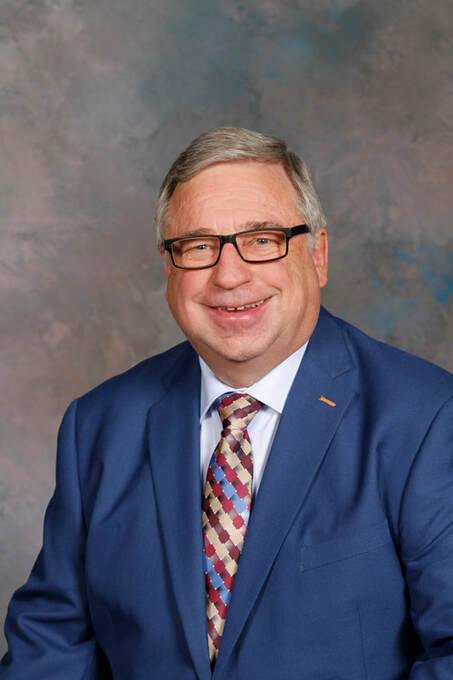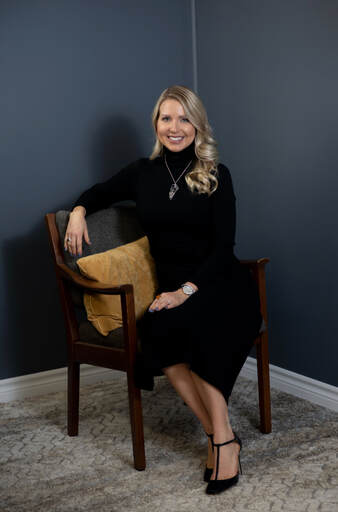Our Story
My name is Carol Schmidt. I am my beloved husband Bob Schmidt’s fiercest advocate and carer. In his last days, he was cared for at Sunnyside Residence at Laurel Creek unit in Kitchener, Ontario. The staff there is and was excellent. They have become my "extended family". On this page, I would like to share our story and hopefully give you enough information about Lewy Body Dementia so that in the future you are able to ask the right questions to your medical team. Our journey began long before we knew Bob had LBD. Lewy hides, operating much like a stealth helicopter, and can hit you when you least expect it. Often you simply do not know what is happening when the attacks come. It can be very confusing if you do not know what is happening or what to look for.
In the early 90’s Bob was vice-principal at Waterloo Oxford high school. During that time, there was a Secondary Teachers' Strike. Suffice to say, it was a tense time at work for him. Bob was always the epitome of calm, no matter what crisis he faced. However, at night, the stress manifested itself with REM difficulties (known as REM Sleep Behavioural Disorder) where he was physically acting out his dreams and flailing his arms and legs in bed. After one very active REM night, I said to him that I may have to sleep in the guest room. We laughed it off as the stressful strike came to an end and we carried on, forgetting about those "REM nights" as I’ve since dubbed them.
A decade later, due to family stress brought on by caring for our aging and ill parents, the REM difficulties began again. They were off and on and less obvious this time around. So, again, we laughed it off and forgot about it. This was about 2005.
In the meantime, Bob, a golfer, and Mr. In-charge-of-whatever-organization-he-lent-his-services-to carried on with life. He was a golf caddy, a rules official, etc. We also traveled and enjoyed ourselves whilst caring for both our parents. Our last parent, Bob’s dad, died February 2013 at the age of 97. In January 2015, we took what we didn't know would be our last trip together. Before we left, we discussed what was happening to Bob (e.g. saliva dripping on each side of his mouth and his hesitancy with words). He decided to seek medical help after the cruise ended and we were home.
Boom!
In February 2015, Bob had a stroke which affected his language center. After the stroke, Bob developed aphasia. He was also hit in his cerebellum and developed balance issues. After he was discharged from the hospital, it took us about 9 months to find a therapist for the problems caused by said stroke. In the summer of 2016, Bob built me a raised garden at the cottage. We could still visit the cottage then. He still cycled but his route became shorter. We carried on but the REM difficulties were becoming more prevalent, as was the saliva difficulty, which were never fully diagnosed.
As with everything else in life we learned that with LBD change and unpredictability is the norm.
The last summer we spent more time at the cottage, but Bob had given up cycling and so, ultimately, we decided to sell the property. We still did not know that Bob had LBD and we chalked up the symptoms to post-stroke side effects and again, in our usual fashion, we carried on.
Once we moved to our present abode, a lovely apartment in town, I noticed that Bob was becoming more disoriented. You can imagine my shock when shortly after living at our new digs Bob asked: ”Why did we move here?”. It was such a shock to me because he was the one who openly shared his distaste towards the previous apartment which we had moved to after selling our home of 30 years. I chalked Bob’s recurring REM difficulties to the stress of the moves and a surgery he had during that time.
I had made the mistake of thinking the REM difficulties were stress-related. No. That was not the cause of these problems.
Finally, Bob’s family doctor sent us to a young neurologist who had just begun his practice. Even better, he was located right across the street from Bob's family doctor. That was one of those little miracles that one experiences in dire times.
We met with the neurologist in Sept. 2017. He spent 2 hours with us and then diagnosed Bob tentatively with Parkinsonian-like symptoms We had never heard this term before that day. The neurologist also prescribed medication for Bob’s REM difficulties and stiffening legs. However, the medications didn’t help Bob much. Fortunately, the neurologist had him stop taking them. I am ever so grateful he never overmedicated Bob. I’ve learned through my research over the last several years that the wrong medications can cause difficulties and sometimes death to those with LBD.
Our second visit with the neurologist happened about a month or so later and lasted a good hour. At that meeting, I was asked to leave the room as Bob needed to be on his own without any coaching from me while he was being tested. That was when we were given the LBD diagnosis. I call that D-Day. Devastation Day. We were absolutely stunned. I had actually heard the term Lewy Body Dementia but had no idea what that really meant or much of anything about the disease. At that moment, I was struck dumb. I wasn't able to retain much information as the Neurologist spoke. The one bit of information that did stick was the answer to my question, "Did the stroke trigger the LBD?” The answer was a definite "No".
Since then, I have learned so many things about LBD. Some of which I didn’t really want to know but I believe that "Knowledge is Power" and knowing even the hard truths can help us along our path. For us, and for me especially, it gave me the power to do more research, to find the courage to travel alone to the International LBD conference in Las Vegas in June 2019 and to attend the film about Robin Williams' life and passing. Robin Williams and his wife never knew he had LBD until after his passing and it was the worst case of diffused LBD the pathologist had ever seen. These experiences were eye-opening.
I believe Bob and I are Lewy warriors. This website is another front where the battle against Lewy will be fought through awareness, education and compassion. My goal is to help others who are facing the same situation and educate myself and others about Lewy Body Dementia.
Thank you for taking the time to read our story.
- Carol
In the early 90’s Bob was vice-principal at Waterloo Oxford high school. During that time, there was a Secondary Teachers' Strike. Suffice to say, it was a tense time at work for him. Bob was always the epitome of calm, no matter what crisis he faced. However, at night, the stress manifested itself with REM difficulties (known as REM Sleep Behavioural Disorder) where he was physically acting out his dreams and flailing his arms and legs in bed. After one very active REM night, I said to him that I may have to sleep in the guest room. We laughed it off as the stressful strike came to an end and we carried on, forgetting about those "REM nights" as I’ve since dubbed them.
A decade later, due to family stress brought on by caring for our aging and ill parents, the REM difficulties began again. They were off and on and less obvious this time around. So, again, we laughed it off and forgot about it. This was about 2005.
In the meantime, Bob, a golfer, and Mr. In-charge-of-whatever-organization-he-lent-his-services-to carried on with life. He was a golf caddy, a rules official, etc. We also traveled and enjoyed ourselves whilst caring for both our parents. Our last parent, Bob’s dad, died February 2013 at the age of 97. In January 2015, we took what we didn't know would be our last trip together. Before we left, we discussed what was happening to Bob (e.g. saliva dripping on each side of his mouth and his hesitancy with words). He decided to seek medical help after the cruise ended and we were home.
Boom!
In February 2015, Bob had a stroke which affected his language center. After the stroke, Bob developed aphasia. He was also hit in his cerebellum and developed balance issues. After he was discharged from the hospital, it took us about 9 months to find a therapist for the problems caused by said stroke. In the summer of 2016, Bob built me a raised garden at the cottage. We could still visit the cottage then. He still cycled but his route became shorter. We carried on but the REM difficulties were becoming more prevalent, as was the saliva difficulty, which were never fully diagnosed.
As with everything else in life we learned that with LBD change and unpredictability is the norm.
The last summer we spent more time at the cottage, but Bob had given up cycling and so, ultimately, we decided to sell the property. We still did not know that Bob had LBD and we chalked up the symptoms to post-stroke side effects and again, in our usual fashion, we carried on.
Once we moved to our present abode, a lovely apartment in town, I noticed that Bob was becoming more disoriented. You can imagine my shock when shortly after living at our new digs Bob asked: ”Why did we move here?”. It was such a shock to me because he was the one who openly shared his distaste towards the previous apartment which we had moved to after selling our home of 30 years. I chalked Bob’s recurring REM difficulties to the stress of the moves and a surgery he had during that time.
I had made the mistake of thinking the REM difficulties were stress-related. No. That was not the cause of these problems.
Finally, Bob’s family doctor sent us to a young neurologist who had just begun his practice. Even better, he was located right across the street from Bob's family doctor. That was one of those little miracles that one experiences in dire times.
We met with the neurologist in Sept. 2017. He spent 2 hours with us and then diagnosed Bob tentatively with Parkinsonian-like symptoms We had never heard this term before that day. The neurologist also prescribed medication for Bob’s REM difficulties and stiffening legs. However, the medications didn’t help Bob much. Fortunately, the neurologist had him stop taking them. I am ever so grateful he never overmedicated Bob. I’ve learned through my research over the last several years that the wrong medications can cause difficulties and sometimes death to those with LBD.
Our second visit with the neurologist happened about a month or so later and lasted a good hour. At that meeting, I was asked to leave the room as Bob needed to be on his own without any coaching from me while he was being tested. That was when we were given the LBD diagnosis. I call that D-Day. Devastation Day. We were absolutely stunned. I had actually heard the term Lewy Body Dementia but had no idea what that really meant or much of anything about the disease. At that moment, I was struck dumb. I wasn't able to retain much information as the Neurologist spoke. The one bit of information that did stick was the answer to my question, "Did the stroke trigger the LBD?” The answer was a definite "No".
Since then, I have learned so many things about LBD. Some of which I didn’t really want to know but I believe that "Knowledge is Power" and knowing even the hard truths can help us along our path. For us, and for me especially, it gave me the power to do more research, to find the courage to travel alone to the International LBD conference in Las Vegas in June 2019 and to attend the film about Robin Williams' life and passing. Robin Williams and his wife never knew he had LBD until after his passing and it was the worst case of diffused LBD the pathologist had ever seen. These experiences were eye-opening.
I believe Bob and I are Lewy warriors. This website is another front where the battle against Lewy will be fought through awareness, education and compassion. My goal is to help others who are facing the same situation and educate myself and others about Lewy Body Dementia.
Thank you for taking the time to read our story.
- Carol
In Memoriam
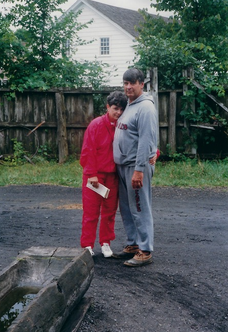
It is with deep and profound sadness that our families announce that Bob has lost his battle with Lewy Body Dementia on February 8th, 2020.
Dearly loved husband (38 years) of H. Carol Schmidt (née Laws). Loving father of Mike (April), Jen, Andy and Steve (Anabelle) and step son Morgan Beare. Cherished grandfather of Brodie, Jordan, Hailey, Keelin, Josh, Thomas, Calvin and Ivy and great-uncle ’Bubba’ to Rebecca and Nicholas Walchyshyn.
Bob was born in Kitchener, attended Shepherd PS, Eastwood Collegiate and WLU (Waterloo Lutheran University). He received his Master of Education from the University of Windsor. Bob taught in Toronto and Kitchener, finishing his career as Principal of Waterloo-Oxford in 1998. He was the Chair and/or President of many organizations in education, church and our community. He enjoyed a good laugh, was always ready to help others in the community.
Bob was diagnosed with Lewy Body Dementia on November 7, 2017. He fought it as hard and long as he could; our Lewy Warrior. We will continue to shine a light on LBD and work towards raising awareness and understanding of this disease in his honour.
The family would like to thank the excellent care Bob received from the wonderful staff at Sunnyside, (Laurel Creek). Thanks especially to Natalia Busch and her team as well as Chaplain Ingrid Loepp-Thiessen. We would also like to thank Dr. M. Tripic, and Dr. T. Irvine.
Dearly loved husband (38 years) of H. Carol Schmidt (née Laws). Loving father of Mike (April), Jen, Andy and Steve (Anabelle) and step son Morgan Beare. Cherished grandfather of Brodie, Jordan, Hailey, Keelin, Josh, Thomas, Calvin and Ivy and great-uncle ’Bubba’ to Rebecca and Nicholas Walchyshyn.
Bob was born in Kitchener, attended Shepherd PS, Eastwood Collegiate and WLU (Waterloo Lutheran University). He received his Master of Education from the University of Windsor. Bob taught in Toronto and Kitchener, finishing his career as Principal of Waterloo-Oxford in 1998. He was the Chair and/or President of many organizations in education, church and our community. He enjoyed a good laugh, was always ready to help others in the community.
Bob was diagnosed with Lewy Body Dementia on November 7, 2017. He fought it as hard and long as he could; our Lewy Warrior. We will continue to shine a light on LBD and work towards raising awareness and understanding of this disease in his honour.
The family would like to thank the excellent care Bob received from the wonderful staff at Sunnyside, (Laurel Creek). Thanks especially to Natalia Busch and her team as well as Chaplain Ingrid Loepp-Thiessen. We would also like to thank Dr. M. Tripic, and Dr. T. Irvine.
Tributes and Memories
"To many he was Robert, Bob, Teacher, Principal, or dad. But to me, he was Grandpa Bob. No matter what his title was to you personally, his character was steady throughout all of his relationships. He was a teacher to everybody he reached. He taught us how to be humble. He taught is what true patience and unconditional love looks like. And he showed us how much more important loving your people was than any prestigious title you could be given.
If you asked him what his title was, he wouldn’t have stated one of his many credentials or honorary award names. He would say that he was a loving husband, a patient father, a giving grandfather, and a loyal friend.
Now this isn’t to say that he wasn’t inspiring with his countless honors. He is who supported all of us grandchildren into chasing post-secondary educations, no matter what type of education that may be. He led the way in athletics for this family and has inspired many of us to take sport to the varsity, provincial and national stage. His legacy lives on in everything we do.
But I hope, and I know that he too would hope, that his legacy of humbleness, kindness and patience, is the legacy that his children, grandchildren, great grandchildren, and generations to come will continue.
I will miss grandpa Bob forever, and I selfishly wish he could still be here to continue to guide us in his footsteps. But I know that he has finished his battle with Lewy Body Dementia, and I am happy he is done with those pains.
I believe that although he has physically left us, he will continue to be with us in the highest and lowest times in life – to grace us with his traits that we need to move forward: humbleness, patience, and unconditional love." - Brodie Schmidt, with approval of her siblings and cousins, acting as the spokesperson for them at the funeral.
"His gentle, humble nature will always be a great role model for a friend, a father and a decent man." - Peter Mansell
"When I think of Bob, I think of the saying 'to teach is to touch eternity.'" - Brian Rainville
"Bob’s legacy will be his sportsmanlike play behaving in a way that was fair, while showing respect towards the other players when playing sports. Bob, who was big in stature, was often looked upon as a “friendly giant”. He respected others and they respected him. Bob will be greatly missed. He was a likeable natural leader who knew how to get the best out of people. He demonstrated these characteristics as a student, player, teacher and administrator." - Warren Stauch
"His quiet, calm, level-headed approach to heading our staff combined with a fabulous sense of humour during challenging times was always refreshing. He kept his ship on course during the troubled waters of education at the time. In times when administrators were expected to toe the line, we could count on him to do what was right for his school, his staff, his students. He was there for us." - Kim McCutcheon
"When I look back to my many years as a teacher, I realise how much I have learned from Bob. His no-nonsense way office cutting to things that matter and his genuine concerns for the well-being of students and colleagues are characteristics I aspire to achieve. It is people like Bob that I appreciate what a real educator and leader is like." - Savio Wong
"He could connect with anyone. Because he listened." - Brian Rainville
If you asked him what his title was, he wouldn’t have stated one of his many credentials or honorary award names. He would say that he was a loving husband, a patient father, a giving grandfather, and a loyal friend.
Now this isn’t to say that he wasn’t inspiring with his countless honors. He is who supported all of us grandchildren into chasing post-secondary educations, no matter what type of education that may be. He led the way in athletics for this family and has inspired many of us to take sport to the varsity, provincial and national stage. His legacy lives on in everything we do.
But I hope, and I know that he too would hope, that his legacy of humbleness, kindness and patience, is the legacy that his children, grandchildren, great grandchildren, and generations to come will continue.
I will miss grandpa Bob forever, and I selfishly wish he could still be here to continue to guide us in his footsteps. But I know that he has finished his battle with Lewy Body Dementia, and I am happy he is done with those pains.
I believe that although he has physically left us, he will continue to be with us in the highest and lowest times in life – to grace us with his traits that we need to move forward: humbleness, patience, and unconditional love." - Brodie Schmidt, with approval of her siblings and cousins, acting as the spokesperson for them at the funeral.
"His gentle, humble nature will always be a great role model for a friend, a father and a decent man." - Peter Mansell
"When I think of Bob, I think of the saying 'to teach is to touch eternity.'" - Brian Rainville
"Bob’s legacy will be his sportsmanlike play behaving in a way that was fair, while showing respect towards the other players when playing sports. Bob, who was big in stature, was often looked upon as a “friendly giant”. He respected others and they respected him. Bob will be greatly missed. He was a likeable natural leader who knew how to get the best out of people. He demonstrated these characteristics as a student, player, teacher and administrator." - Warren Stauch
"His quiet, calm, level-headed approach to heading our staff combined with a fabulous sense of humour during challenging times was always refreshing. He kept his ship on course during the troubled waters of education at the time. In times when administrators were expected to toe the line, we could count on him to do what was right for his school, his staff, his students. He was there for us." - Kim McCutcheon
"When I look back to my many years as a teacher, I realise how much I have learned from Bob. His no-nonsense way office cutting to things that matter and his genuine concerns for the well-being of students and colleagues are characteristics I aspire to achieve. It is people like Bob that I appreciate what a real educator and leader is like." - Savio Wong
"He could connect with anyone. Because he listened." - Brian Rainville
Meet Our Founder
H. Carol Schmidt is the founder of Canadian Lewy Body Information. She is an advocate, caregiver, retired teacher, and artist. She started this project after her husband Bob was diagnosed in 2017. She has attended the International Lew Body Dementia Conference in 2019 and the screening of Robin's Wish in New York City in 2019.
Meet Our Advisory Board
|
Natalia Busch RN BScN
Registered nurse from McMaster University with 16 years experience in gerontology, dementia care, and palliative care. Current Team Leader of two Dementia Care home areas at Sunnyside Home Long Term Care facility for the Region of Waterloo. Committed to the culture change in dementia care to a true person centre care model instead of the current task oriented model. In 2017 completed the Comprehensive Advanced Palliative Care Education (CAPCE) program with a focus in adult palliative approach to care and end of life care. Co-chair of the Palliative Care Committee at Sunnyside Home. |
|
Joseph Daniel
Joseph Daniel is a 34 year old digital content creator, musician, graphic artist and web designer from Kitchener, Ontario. He has a Bachelor's Degree in Cinema Studies from Wilfrid Laurier University. Having worked with multiple music festivals, independent clients and start-ups all over Ontario since 2012 (including KOI Music Fest, Creative Enterprise Initiatives, Alan & Lea Daniel Inc., Voila Salons and many others), Joseph brings a well-rounded digital skillset to the team. With further experience in on-site and digital promotion, administration assistance and social media management, he brings his unique work experience and knowledge to the project. Joseph also owns and operates his own music production, graphic design and audio engineering company that caters to local musicians in the Kitchener-Waterloo region and across Ontario. He is responsible for curating and building the website, creating graphics/branding and doing administrative work for CLBDI. |
|
David Malina
David Malina is a pastor in the Eastern Synod of the Evangelical Lutheran Church in Canada (ELCIC), and has served congregations for over 20 years in Halifax, Nova Scotia, Kitchener, and Waterloo Ontario. Currently he serves Christ Lutheran Church in Waterloo. Born in Stratford Ontario, David has a twin brother living in Arnprior, Martin, also a Lutheran pastor serving a church in Ottawa. David's father, Jan Malina, recently died having suffered with dementia for over ten years. His mother, Joanna, currently resides in Ottawa. Both parents had been active pastors in the Eastern Synod ELCIC. Upon arrival at Christ Waterloo in 2016, David met Bob and Carol, and has journeyed with them through the challenges of Bob's dementia. |
|
Marisha Sesto
Living in Ottawa ON, Marisha Sesto is a marketing and sales leader in the tech and B2B SaaS space. Marisha is passionate about storytelling, the combination of strategy and creativity, and using different channels to create connections across audiences to achieve impactful results in her work. She brings these passions to the CLBDI team, supporting digital marketing, content creation, event planning and fundraising. Marisha recently lost her incredible grandpa to Lewy Body Disease. Only grasping what LBD was through his diagnosis, Marisha and her family learned how to care and support her grandpa and each other on-the-fly, with the resources and healthcare team that were available at that time. Marisha has joined the board to help raise awareness around the disease, build a community with others affected by LBD, and drive fundraising to accelerate Lewy Body R&D. |
|
Michelle Sesto
Michelle Gilles Sesto is a native of St. Jacobs and has made London her home for the past twenty years, where she and her husband have raised their family of three wonderful adults. Michelle has thoroughly enjoyed her rewarding career in education with the Waterloo Region District School Board and Thames Valley District School Board, teaching students from kindergarten to grade six for twenty plus years. Michelle and her family recently lost her amazing father after a brave and difficult battle with Lewy Body Disease. As Michelle and her family supported and cared for her athletic and quick-witted loving father, they experienced the heart-wrenching rollercoaster of Lewy Body Disease. Michelle has joined the board to learn more about Lewy Body, raise awareness and boost fundraising around this devastating disease, find comfort in a supportive, growing community, and help others coping with LBD. |
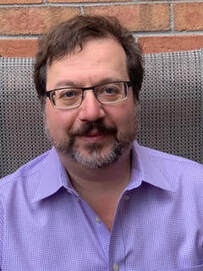
Dr. Stephen Pasternak
Dr. Stephen Pasternak is a Cognitive Neurologist and Director of the Cognitive Neurology and Alzheimer’s Disease Research Centre at Parkwood Institute and a Scientist at the Robarts Research Institute at Western University (The University of Western Ontario). He received his S. B. Degrees in Chemical Engineering and in Life Sciences from the Massachusetts Institute of Technology in Cambridge, Massachusetts. He completed the MD/PhD program at McGill University, Montreal, earning his PhD in the Department of Neurology and Neurosurgery in 1994 and his M.D. C.M. in 1995. Dr. Pasternak then completed his Neurology residency at the University of Toronto in 2000, followed by Post-Doctoral training in Cell Biology at the Hospital of Sick Children in Toronto and Fellowship training in Cognitive Neurology at the University of Toronto.
His laboratory at the Robarts Research Institute in uses biochemical and specialized microscopy techniques to study the basic biology of Amyloid in Alzheimer’s disease and Alpha Synuclein in Lewy Body disease/Parkinson’s disease. He is also working to develop blood tests neurological diseases including Lewy Body and Parkinson’s disease.
In the clinic at Parkwood Institute, he sees patients with Neurodegenerative disease, and is involved with academic and industry sponsored international multi centered clinical trials, along with his own trial of Ambroxol in Parkinson’s Disease Dementia, which he hope to expand to include Lewy Body dementia.
Dr. Stephen Pasternak is a Cognitive Neurologist and Director of the Cognitive Neurology and Alzheimer’s Disease Research Centre at Parkwood Institute and a Scientist at the Robarts Research Institute at Western University (The University of Western Ontario). He received his S. B. Degrees in Chemical Engineering and in Life Sciences from the Massachusetts Institute of Technology in Cambridge, Massachusetts. He completed the MD/PhD program at McGill University, Montreal, earning his PhD in the Department of Neurology and Neurosurgery in 1994 and his M.D. C.M. in 1995. Dr. Pasternak then completed his Neurology residency at the University of Toronto in 2000, followed by Post-Doctoral training in Cell Biology at the Hospital of Sick Children in Toronto and Fellowship training in Cognitive Neurology at the University of Toronto.
His laboratory at the Robarts Research Institute in uses biochemical and specialized microscopy techniques to study the basic biology of Amyloid in Alzheimer’s disease and Alpha Synuclein in Lewy Body disease/Parkinson’s disease. He is also working to develop blood tests neurological diseases including Lewy Body and Parkinson’s disease.
In the clinic at Parkwood Institute, he sees patients with Neurodegenerative disease, and is involved with academic and industry sponsored international multi centered clinical trials, along with his own trial of Ambroxol in Parkinson’s Disease Dementia, which he hope to expand to include Lewy Body dementia.
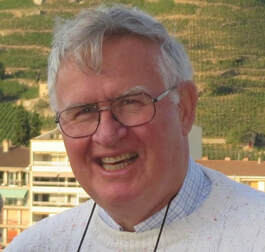
Brian Rainville BSc, CD
Brian Rainville is a former secondary school educator for 33 years with Waterloo Region District School Board. He retired as a Principal. Brian served in the Canadian Army Reserve for 31 years and retired as a Colonel and District Commander. He is a past Honorary Lieutenant Colonel (3 years) and Colonel (3 years) of The Royal Highland Fusiliers of Canada, Waterloo Region’s Reserve Army Infantry Regiment. He is the past President of Elmira & District Curling Club and served on the board for 5 years. Brian is also the past President of Kitchener-Conestoga Club and served on the board for 5 years. He is also a member of the Royal Highland Fusiliers’ Regimental Trust.
Brian Rainville is a former secondary school educator for 33 years with Waterloo Region District School Board. He retired as a Principal. Brian served in the Canadian Army Reserve for 31 years and retired as a Colonel and District Commander. He is a past Honorary Lieutenant Colonel (3 years) and Colonel (3 years) of The Royal Highland Fusiliers of Canada, Waterloo Region’s Reserve Army Infantry Regiment. He is the past President of Elmira & District Curling Club and served on the board for 5 years. Brian is also the past President of Kitchener-Conestoga Club and served on the board for 5 years. He is also a member of the Royal Highland Fusiliers’ Regimental Trust.
Former Advisory Board Members
|
Keith Myra
Keith has a strong financial background including 40 years working for Sun Life, a large global financial services company. Although his role there involved primarily management of IT people, projects and operations, he acquired extensive knowledge of accounting, investments and various other financial areas. Keith has served as Treasurer of the Eastern Synod of the Evangelical Lutheran Church in Canada for thirty years, a role that he continues to hold. The Eastern Synod is a Registered Charity that includes Ontario and the Maritime provinces and reported $4.9 million of revenue in 2018. He also served as treasurer of several other smaller charities and currently volunteers with four other charities and not-for-profit organizations in various capacities. His educational background includes a Bachelor of Arts (Mathematics Major) degree from Waterloo Lutheran University (now known as Wilfrid Laurier University) as well as numerous other courses and seminars that he has attended throughout his working career and through volunteering with various organizations. |
|
Natalie Leitzmann
"After a long standing legal career, I am now in the field of nutrition and wellness and aim to heal through food and own my own company, The Bold Visionary, with my business partner. In 2020, I was diagnosed with Multiple Sclerosis and Lyme Disease and have successfully treated both ailments naturally through diet and exercise. I believe that many of our diseases stem from a poor diet including Alzheimer’s and Dementia. I have taken courses through Apollo Health on cognitive decline that indicate that early warnings of dementia can be reversed through diet, exercise and proper sleep. I was a young 22 year old when I was first introduced to LBD and have written and studied for many papers through my university career. As an advocate for my father for his 12+ year journey with LBD, I have first hand experience with doctors and was on my way to medical school when my own diagnosis hit. I decided that I wanted to get to the root causes of the diseases rather than labelling and putting a "band-aid" on them. I firmly believe that we can help others suffering from these debilitating diseases." |
Medical disclaimer: Canadian Lewy Body Information does not provide medical advice. The content available on this website does not provide a diagnosis. The information herein is not a substitute for the professional judgment of a healthcare professional. The determination of the need for medical services and the types of healthcare to be provided to a patient are decisions that should be made only by a physician or other licensed health care provider. Always seek the advice of a physician or other qualified healthcare provider with any questions you have regarding a medical condition.
Proudly powered by Weebly
